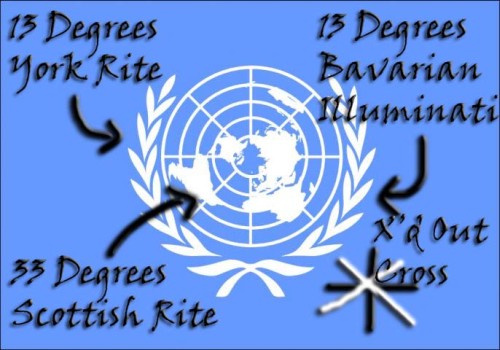NWO evolving world system
By Tom PicconeThe New World Order -- You have probably heard these words used in recent years, perhaps beginning with President George Bush in 1990.
But what does this phrase mean? Who has been using the expression? When and where did this idea of a new world order originate? How will this new world order be implemented? More importantly, how will this new world order affect you?

The words "new world order" have been in use for decades, and did not originate with President Bush. The "old world order" is one based on independent nation-states. The "new world order" involves the elimination of the sovereignty and independence of nation-states and some form of world government.
Most of the new world order proposals involve the conversion of the United Nations and its agencies to a world government, complete with a world army, a world parliament, a world court, global taxation, and numerous other agencies to control every aspect of human life (education, nutrition, health care, population, immigration, communications, transportation, commerce, agriculture, finance, the environment, etc.). The various notions of the "new world order" differ as to details and scale, but agree on the basic principle and substance, and will mean the end of the United States of America, the U.S. Constitution, and the Bill of Rights as we now know them.Origins of The New World Order
In the late nineteenth century, with the industrial revolution sweeping Europe and America, certain individuals dreamed of a world far different from the one in which they lived, a world organized in such a way that wars would be impossible and every aspect of human life would be arranged by educated men for the benefit of all. These dreamers included men of great ability and wealth who devoted their talents and fortunes to carry out their plans. The point of origin of these people was England, and their idea initially was to extend the British Empire to include the whole earth. If British rule were complete, how could there be any reason for war, and who could attempt it?
The most prominent of the individuals who developed the idea of a new world order were Cecil Rhodes, Andrew Carnegie, and members of the Fabian Society, particularly H. G. Wells.
Cecil Rhodes went from England to Africa in an attempt to improve his poor health, and acquired enormous wealth by developing diamond mining properties. He died in 1902 and donated his fortune to establish a Rhodes scholarship program at Oxford University to carry out his ideas. The scholarships were to go to promising young men from the British colonies and the United States, with the majority going to Americans.
Andrew Carnegie went from Scotland to the United States and founded U. S. Steel, earning for himself a substantial sum of money. Carnegie used his wealth to set up foundations to fund educational, religious, and political organizations to "cultivate the international mind" and promote world peace. Some of his money went to the Federal Council of Churches. The Carnegie Endowment for International Peace was established, and began funding educational initiatives. By the end of World War II, the U. S. State Department was largely controlled by Rhodes scholars and members of this Carnegie Endowment, and was emphasizing the idea of world peace through the United Nations.
The Fabian Society was a group of intellectuals in England who believed that socialism was the way to organize the world for social and economic progress. H.G. Wells was originally a member of the Fabian Society and wrote extensively on political topics, influencing thinking in international affairs. In one of his books, entitled The New World Order (1939), Wells stated that world socialism was inevitable, and that there would be a difficult and painful transition period in which many "quite gallant and graceful-looking people" would "die protesting against it."
Structure of The New World Order
The basic concept of the new world order is world government. For Rhodes and Carnegie, it was British rule expanded to cover the earth, or at least British influence through English-speaking countries to organize the rest of world according to the English way of life and thinking. Wells and others set out to bring the world under socialism, step by step, in a gradual process. Over the years, proposals were made successively for world federation, a League of Nations, and the United Nations.
The new world order is to be implemented through regionalism. Basically, the world is to be divided into geographical regions, internationally, nationally, and locally, and these regions are to be the new units of government, replacing the old, traditional notions of nation-states, cities, towns, villages, etc. Control over every aspect of human life is to be exercised in the form of an administrative dictatorship, from the top down, through an enormous bureaucracy of appointed officials, specialists, and planners accountable only to the elected executives.
Political power is to be concentrated in the executive branch of government, removing it from the control of the people through their elected legislative representatives. The choices presented to the people for the elected executives are limited to candidates selected by the political establishment, and not by the people themselves. In this way, the outward form of democracy is retained to an extent, but the power is entirely taken away from the people and concentrated in government.
The transition to world government is being carried out gradually, with appropriate "education" of the populace, until the system is fully in place. Forces have joined together to push for world government, first by one means, and then by another after the first method meets opposition. These forces never stop. They never admit defeat. There is only delay, and then new ideas of how to bring the entire world into a planned administrative system.
By Qi Badd
| Friday, June 3, 2011
|
Down,
eeeiii
| No Comments »
![]()






























